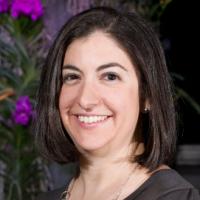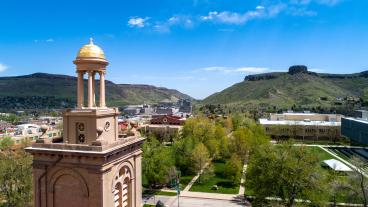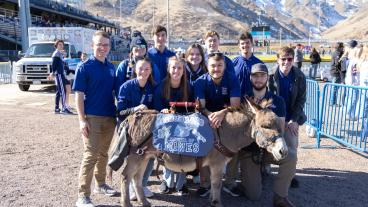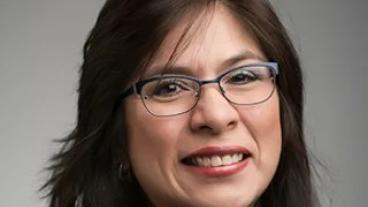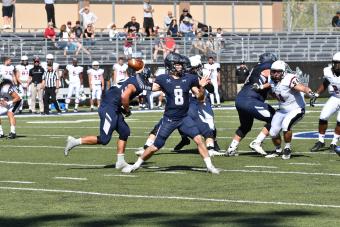
Justin Dvorak '17, former Mines football quarterback and Harlon Hill Trophy recipient, still maintains the friendships he gained as a student-athlete at Mines.
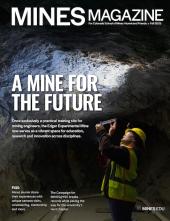
Jennifer Kendall ’18 knew that playing soccer at Mines meant she would gain a group of teammates. What she didn’t know was that she would also gain lifelong best friends.
While at Mines, Kendall’s teammates supported each other, both on and off the field. They helped Kendall decide which classes to take, and older team members guided her through her mechanical engineering degree, a major many of them shared. And now that she works as a propulsion systems engineer, Kendall still gets advice and support from her Mines soccer teammates, who often understand what it’s like to be a woman working in a male-dominated field.
“Just like on the soccer fields, we might be competing for the same position, but at the end of the day, we all just want the same goal, which is to win and be our best,” she said. “And as we transitioned through life, every time I see my soccer friends, I still want them to be the best they can be, whether that’s having children, getting married, we’re always there for each other.”
Kendall’s experience is not a rare one. Orediggers from different generations regularly stay in touch with their teammates, whether they continue playing the sport they love or because their experiences at Mines bonded them together.
Justin Dvorak ’16 was on the football team all four years he was at Mines. He started as quarterback for three of those years and was team captain for two. A standout on the field, he received the Harlon Hill Trophy, given to the individual selected as the most valuable player in NCAA Division II. He said being a student-athlete was a challenging but rewarding experience.
“At many times it was overwhelming,” Dvorak said. “However, I had some of the greatest times of my life while at Mines. There is no better place if you want to study engineering and be successful on the field.
I am a better person in every aspect for having went to Mines and being a student-athlete.”
That connection is one he didn’t want to lose, even after graduating and wanted other student-athletes to be able to find that same connection. Dvorak, who is originally from Tomball, Texas, now lives in Houston and works as a drilling engineer. One of the ways he stays connected to Mines football is through the Lone Star Scholarship, which he established in 2019. He reached out to some of his Oredigger teammates who also hail from his home state to help give financial support to Mines football student-athletes from Texas.
Along with helping a fellow Texan, creating the award was a way to establish a link between his former teammates and the current team. Dvorak said he follows the on-field careers of the award winners and regularly comes back to campus for alumni and homecoming weekends. He also attends Mines-sponsored events in Houston as often as he can to keep that bond with his teammates going.
“I don’t get to see old teammates as much as I’d like, but when we are back together, we don’t skip a beat,” he said.
For Shaun Bevers ’05, a sport he didn’t know how to play helped him bond with friends. As an undergraduate, his roommate, Bob Ratzi, dragged Bevers and some friends to play on an intramural ultimate frisbee team.
“I knew nothing about the sport, and neither did any of my friends. Essentially, we were terrible, but it was nice to do something that me and my roommates could share,” he said. “I didn’t know it at the time, but that connection would actually extend after school.”
Now a couple decades after their undergraduate years at Mines, Bevers said that he, Ratzi and several other Mines alumni still play in a competitive ultimate league every summer in the Denver area.
“I wasn’t sure if I was going to keep playing [after Mines], but I have,” he said. “Playing ultimate recreationally is essentially how we could stay connected and meet other Mines people. So many Mines alumni live in the south and west sides of Denver that a lot of people who play club ultimate at Mines end up finding their way to this league after they get out of school.”
It might be for a couple of months each year, but Bevers said it’s been essential to keeping his college friendships going as he and his teammates have gotten older and life milestones interfere.
“Bob is my best friend, but since he has two kids now, I see him more sparingly than I did before. Outside of ultimate, it’s hard to catch up sometimes,” Bevers said. “Having a defined activity with a schedule makes it easier to stay in touch.”
Because Bevers stayed in the Denver area and still plays ultimate—in addition to returning to Mines for graduate school in 2018—it felt like he’d never truly left Mines. He’s been back to campus for sporting events, both to watch Oredigger teams and the professional ultimate team in Denver, which plays games at Marv Kay Stadium. And by interacting with so many alumni in this way, his Mines connection has stayed strong.
“It’s always nice to run into Mines alumni, either by seeing a sticker or a hat or something like that,” he said. “We all share a commonality, whether it’s the M Climb or suffering through Physics 2. There’s a lot of shared experiences at Mines that make it really easy to connect with people.”

